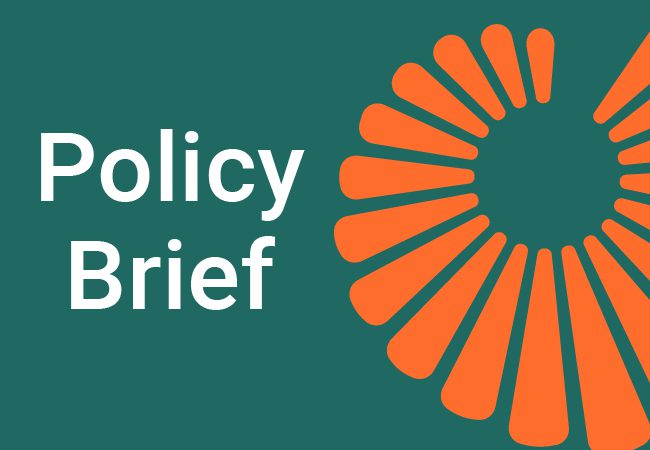Policy Brief: Availability, Quality, and Affordability of Early Years care

A new report from the Organisation for Economic Co-operation and Development (OECD) looks at the availability, quality, and affordability of Early Years care in OECD countries. It looks at the differences in enrolment rates across the OECD and efforts to improve the availability of Early Years care. It also analyses the variation in out-of-pocket care costs and how countries try to support families that struggle to afford it.
Participation
There is a wide variation in Early Years care enrolment levels. The average enrolment rate for birth to six-year-olds was 36 per cent in 2020, compared to 88 per cent for three to five-year-olds. The variation across countries can be put down to differences in parental leave entitlements, the degree of public Early Years care support, and the attitude of society towards to provision of care to very young children. The Netherlands has the highest participation rate in Early Years care for zero to two-year-olds with 70 per cent enrolled. However, the majority of mothers work part-time while their children attend care for one or two days per week. Scandinavian countries seek to provide conditions that allow both parents to work full-time. This has resulted in a well-funded Early Years sector with high participation rates from a young age.
To improve enrolment rates, many countries have lowered the age of mandatory enrolment or expanded the right to Early Years care for younger children. Over the last five years, Australia, France, Hungary, and Italy are some of the countries that have increased subsidies towards investment in the Early Years sector via the local government of private providers. Responses to the Covid-19 pandemic in some countries also involved expanding Early Years provision. For example, Italy committed to creating 264,000 new Early Years places while Germany’s response to the pandemic included €1 billion to expand Early Years capacity.
Costs
The average cost of Early Years care for a dual-earner couple on low earnings with two children in the OECD is about 10 per cent of the average wage. However, in countries such as the Czech Republic, New Zealand, and the UK it can reach almost 30 per cent. High Early Years costs can dampen the financial incentives to work for second earners, often mothers, in median-income households. By raising participation tax rates, high Early Years care costs frequently act as a barrier to maternal employment. In Ireland, Lithuania, and Switzerland, participation tax rates in median earnings households can be 70 per cent or above, with the cost of Early Years provision often contributing half or more.
There is a significant gap in many OECD counties in Early Years care use across income groups. This is particularly noticeable in families with children under the age of three. In Finland and Switzerland, relatively high net Early Years care costs likely contribute to the large gap in enrolment into Early Years provision between children in families of the lowest and highest income level.
Countries across the OECD have implemented a variety of support programmes for low-income households to help reduce the cost of Early Years care. Estonia has limited Early Years fees to 20 per cent of the monthly minimum wage, while Germany exempts low-income and other vulnerable households from paying fees for Early Years provision. Norway has capped fees at a maximum of 6 per cent of gross household income and it has recently introduced aright to 20 hours of free Early Years care for low-income parents.
Quality
Promoting high-quality Early Years care is also seen as a policy priority. While access to at least one year of Early Years care is offered in most OECD countries, universal access is not a guarantee of high-quality care. OECD countries are struggling to recruit and retain highly skilled workers. This is due to poor working conditions, low wages, limited opportunities for professional development, and a lack of status and public recognition of the profession.
Many countries have developed strategies to achieve high-quality Early Years care. The Danish and Norwegian Governments have introduced minimum requirements for child-staff ratios. The Czech Republic has introduced vocational standards or obligations for further education of carers, and Denmark has devoted funds for the further education of staff. Other countries have tried to improve quality by changing their Early Years systems. South Korea integrated and divided services according to needs. They have also introduced more automation of administrative services, alongside the likes of Hungary and Italy.
If you have any questions regarding the report or would like to engage with us, please contact our policy team.









